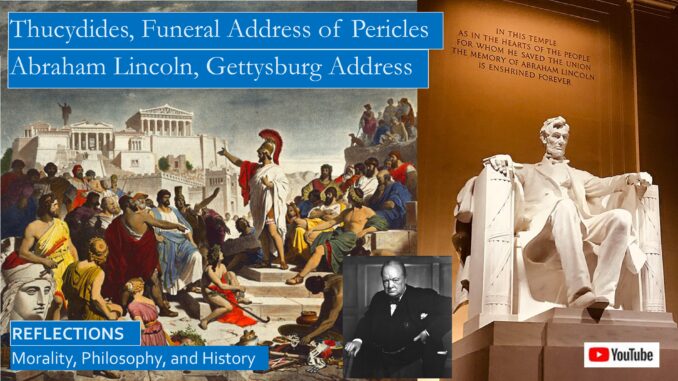
We will compare and contrast Abraham Lincoln’s Gettysburg Address, the Funeral Oration of Pericles, and Winston Churchill’s speech honoring those pilots who saved democracy after the Battle of Britain.
Abraham Lincoln delivered the Gettysburg Address at the dedication of the Soldiers’ National Cemetery in Gettysburg, Pennsylvania, four and half months after the Battle of Gettysburg. Although many scholars says that strategically that Grant’s victory at Vicksburg was strategically the turning point of the war, the newspaper reading public, and the European diplomats, thought that Gettysburg was the turning point placing the Union on the path to victory. The Battle of Gettysburg was the bloodiest battle of the civil war. Over a quarter of the Union soldiers became casualties, over a third of the Confederates were casualties. Both sides lost twenty to thirty thousand soldiers.
YouTube video: https://youtu.be/wyjWBAG6xrc
YouTube Script with more book links: https://www.slideshare.net/BruceStrom1/pericles-funeral-oration-plague-lincoln-gettysburg-address-churchill-battle-of-britain-speech
Link to view complete series of blogs on the Peloponnesian Wars:
https://seekingvirtueandwisdom.com/category/peloponnesian-wars/
Link to view complete series of videos on the Peloponnesian Wars:
https://www.youtube.com/watch?v=szi7-9QQWI0&list=PLJVlY2bjK8lg2pivnGN3m13VI8YstKs0T
If you ask Dr Wikipedia about the Gettysburg address, you will learn that many scholars see similarities between the Gettysburg address and the Funeral Oration of Pericles.[1] Did Lincoln read the Pericles funeral oration before he drafted the Gettysburg address? There’s no indication that he did, but it would be a greater surprise if there weren’t many similarities. Both Lincoln and Pericles were both leaders of a democratic state, both saw their democracies as exceptional, both were delivering funeral orations, both promoted democracy in their speech, and they both wanted to commemorate those who died on the battlefield. We will also reflect on some dissimilarities.
One major difference between the two speeches is their length, Thucydides’ coining of Pericles’ Funeral Oration runs for eight pages, whereas Lincoln’s four minutes speech was delivered in a mere four minutes. We do not have a copy of Pericles actual speech. What we do have is his speech as reported by Thucydides, who starts with memories of the actual speech and adds the words speakers must have said, including the reflections of Thucydides.
LET THE SPEECHES BEGIN
Lincoln was terse and succinct in his opening sentence, reflecting the stark differences between the Union and the Confederacy. Lincoln only needed to say that “our fathers were dedicated to the proposition that all men are created equal,” to say more would distract. The Civil War was fought over the simple question of whether the negro was equal to the white man, whether slavery should be abolished, whether black slaves are real people, with real rights and real aspirations, whether slaves are merely talking livestock.
Lincoln opens the Gettysburg Address: “Four score and seven years ago our fathers brought forth on this continent, a new nation, conceived in Liberty, and dedicated to the proposition that all men are created equal.”[2]
Pericles pushed through the reforms establishing the Radical Democracy of Athens, where all citizens could participate in all levels of the Assembly, councils, juries and courts, so you could argue that the Athens of Pericles was also a new nation, with newly established liberties for all male citizens.
Pericles praises the Athenian democracy in his Funeral Oration: “Let me say that our system of government does not copy the institutions of our neighbors. It is more the case of our being a model to others, than of our imitating anyone else. Our constitution is called a democracy because power is in the hands not of a minority but of the whole people. When it is a question of settling private disputes, everyone is equal before the law; when it is a question of putting one person before another in positions of public responsibility, what counts is not membership of a particular class, but the actual ability which the man possesses. No one, so long as he has it in him to be service of the state is kept in political obscurity because of poverty.”[3]
Unlike Pericles, Lincoln emphasizes that the Union is fighting a Civil War. The Peloponnesian War was a different kind of war, you could argue that Athens was the aggressor in the war, whereas in the Civil War the Confederacy was the aggressor when it first bombarded Fort Sumter, though the North was compelled to invade the Confederacy to save the union, and in time, to abolish slavery. Also, Pericles and Thucydides want to distinguish between the Athenians and the Spartans, their culture, their attitudes, and their systems of government.
LINCOLN, PERICLES, AND CHURCHILL ON WARTIME SACRIFICES
But both Abraham Lincoln and Pericles declare that the living cannot consecrate the dead, the dead themselves by their supreme sacrifice consecrate the hallowed ground in which they are buried.
Lincoln continues the Gettysburg Address: “Now we are engaged in a great civil war, testing whether that nation, or any nation so conceived and so dedicated, can long endure. We have met on a great battlefield of that war. We have come to dedicate a portion of that field, as a final resting place for those who here gave their lives that that nation might live. It is altogether fitting and proper that we should do this.”
Perhaps Lincoln here emphasizes a nation with slaves is not really a living nation, a fitting and proper nation. Professor Rufus Fears points out that Lincoln uses biblical language when he declares that the soldiers “gave their lives that that nation might live,” they gave their lives for the values of their country just as Christ sacrificed his life for us.
Lincoln continues: “But, in a larger sense, we cannot dedicate, we cannot consecrate, we cannot hallow, this ground. The brave men, living and dead, who struggled here, have consecrated it, far above our poor power to add or detract. The world will little note, nor long remember what we say here, but it can never forget what they did here. It is for us the living, rather, to be dedicated here to the unfinished work which they who fought here have thus far so nobly advanced.”
Professor Rufus Fears points out, “Dedicate, consecrate, and hallow are all religious words. These men have made this ground sacred in dying for their country.”[4]
After Lincoln’s assassination, Congress would pass the Radical Reconstruction Acts enforcing the civil rights of the freed slaves, and the Reconstruction Amendments abolishing slavery, guaranteeing the freed slaves citizenship, due process, and the right to vote. This was a Second Founding, thew federal government could now guarantee due process and equal protection under the law if the states attempted to deny these rights.
Like Lincoln, Pericles felt that mere words were insufficient to truly consecrate those soldiers who had given their lives fighting for their country.
Professor Jeremy McInerney says that the Athenians were expecting to hear the standard speech about how the noble Theseus defended Athens from the Amazonians, how the Athenians defeated the Persians at the Battle of Marathon and the Battle of Salamis; but no, Pericles instead does the unexpected, he tells the Athenians, You’ve already heard these speeches before, so today I will celebrate our democracy.[5]
Pericles opens his Funeral Oration: “Many of those who have spoken here in the past have praised the institution of this speech at the close of our ceremony. It seemed to them a mark of honor to our soldiers who have fallen in war that a speech should be made over them. I do not agree. These men have shown themselves valiant in action and it would be enough, I think, for their glories to be proclaimed in action, as you have just seen it done at this funeral organized by the state. Our belief in the courage and manliness of so many shall not depend on the goodness or badness of one man’s speech.”[6]
What Pericles is referring to is the practice of fathering the remains of all the soldiers who died in battle in the prior year in large coffins, one for each of the ten tribes, that will be buried after the ceremony. In a warrior culture like that of ancient Greece, courage and manliness are prime virtues.
A similar memorial speech, although it is not a funeral oration, is Winston Churchill’s speech commemorating the brave fighter pilots who triumphed in the Battle of Britain, when many people feared that England may be lost, when many feared that the Nazis might invade England. This speech was delivered when the immediate threat of invasion from Nazi Germany had dissipated, but now England faced a long and uncertain future, and a long and uncertain war.
Churchill recounts the struggle the British recently survived: “The British nation and the British Empire, finding themselves alone, stood undismayed against disaster.” “Our people are united and resolved, as they have never been before. Death and ruin have become small things compared with the shame of defeat or failure in duty. We cannot tell what lies ahead. It may be that even greater ordeals lie before us. We shall face whatever is coming to us. We are sure of ourselves and of our cause, and that is the supreme fact which has emerged in these months of trial.” “We have good reason to believe ourselves capable of continuing the war, if necessary, alone, if necessary, for years.”[7]
When these speeches were delivered, Athens, the Union, and Britain faced many long years ahead, battling a determined foe.
LINCOLN, PERICLES, AND CHURCHILL HONORING THE DEAD
Lincoln concludes the Gettysburg Address: “It is rather for us to be here dedicated to the great task remaining before us, that from these honored dead we take increased devotion to that cause for which they gave the last full measure of devotion, that we here highly resolve that these dead shall not have died in vain, that this nation, under God, shall have a new birth of freedom—and that government of the people, by the people, for the people, shall not perish from the earth.”[8]
In the beginning of the speech, Lincoln mentions liberty, but here Lincoln talks of devotion to a new birth of freedom, not a false freedom that enslaves others, but the true freedom that will not perish or be forsaken.
Near the end of Pericles’ Funeral Oration, he declares all citizens should be inspired by the example of these brave soldiers: “This, then, is the kind of city for which these men who could not bear the thought of losing her, nobly fought and nobly died. It is only natural that every one of us who survived them should be willing to undergo hardships in her service.”[9]
All three of our speakers: Lincoln Pericles and Churchill urged their countrymen to be eager to undergo hardships to further their democracy. And Pericles reminds us, once again, that the ancient Greek culture was a warrior culture.
Pericles says this about the struggles of the soldier. “As for success or failure, they left in the doubtful hands of Hope, and when the reality of battle was before their faces, they put their trust in their own selves. In the fighting, they thought it more honorable to stand their ground and suffer death than to give in and save their lives. So, they fled from the reproaches of men, abiding with life and limb the brunt of battle; and, in a small moment of time, the climax of their lives, a culmination of glory, not a fear, were swept away from us.”
And Pericles reminds us, as Homer reminds us in the Iliad, that warriors in a warrior culture fight for kleos, or glory. In ancient Greece you were immortalized by the memories your fellow countrymen have of your courageous acts on the battlefield. Pericles says this: “Our soldiers gave her, Athens, their lives, to her and all of us, and for their own selves they won praises that never grow old, the most splendid of sepulchers, not the sepulcher in which their bodies are laid, but where their glory remains eternal in man’s minds, always there on the right occasion to stir others to speech or to action. For famous men have the whole earth as their memorial: it is not only the inscriptions on their graves in their own country the mark them out; no, in foreign lands also, not in any visible forms but in people’s hearts, their memory abides and grows. It is for you to be it is for you to try and be like them. Make up your minds that happiness depends on being free, and freedom depends on being courageous.”[10]
Likewise, Churchill congratulates the fighter pilots who saved Britain, “The gratitude of every home in our Island, in our Empire, and indeed throughout the world, except in the abodes of the guilty, goes out to the British airmen who, undaunted by odds, unwearied in their constant challenge and mortal danger, are turning the tide of the World War by their prowess and by their devotion. Never in the field of human conflict was so much owed by so many to so few.”
This was Churchill’s most famous quote of the war, “Never in the field of human conflict was so much owed by so many to so few.”
Churchill continues, “All hearts go out to the fighter pilots, whose brilliant actions we see with our own eyes day after day; but we must never forget that all the time, night after night, month after month, our bomber squadrons travel far into Germany, find their targets in the darkness by the highest navigational skill, aim their attacks, often under the heaviest fire, often with serious loss, with deliberate careful discrimination, and inflict shattering blows upon the whole of the technical and war-making structure of the Nazi power.”[11]
When Winston Churchill spoke of Hitlers minions, he always slurred the Z, he never spoke crisply of the Nazis, he always spoke of the nazzzies, like they slithered in the dark with the ilk of Gollum.
MORE ON PERICLES’ SPEECH
The length of Pericles’ Funeral Oration might lead you to believer that Thucydides drew inspiration from the long speeches of Captain Kirk on the starship Enterprise.
Thucydides through Pericles is interested in conveying to the reader the uniqueness of the democracy of Athens and how it is superior to the aristocracy of Sparta. Thucydides has Pericles proclaiming, “In this land of ours there have always been the same people living from generation to generation up till now, and they, by their courage and their virtues, have handed it on to us, a free country. They certainly deserve our praise. Even more so do our fathers deserve it. For the inheritance they had received they added all the empire we have now, and it was not without blood and toil that they handed it down to us of the present generation.”[12]
I wonder if this was a partial inspiration for Winston Churchill’s speech at the beginning of World War II, when he said to all of England, “All I can offer you are blood, toil, tears and sweat.”
Pericles continues, “We are free and tolerant in our private lives; but in our public affairs we keep to the law. That is because the law commands our deep respect.” “We give our obedience to those whom we put in positions of authority, and we obey the laws themselves, especially those which are for the protection of the oppressed, and those unwritten laws which are an acknowledged shame to break.”[13]
When Pericles compares the Athenians to the Spartans, he says, “There is a difference in our educational systems. The Spartans, from the earliest boyhood, are submitted to the most laborious training in courage. We Athenians pass our lives without all these restrictions, yet we are just as ready to face the same danger dangerous as they are.” There are “certain advantages in our way of meeting danger voluntarily, with an easy mind, instead of with a laborious training, with natural rather than state-induced courage.”[14]
Pericles answers that Athenians are also spartan in their ethics. “Our love of what is beautiful does not lead to extravagance; our love of the things of the mind does not make us soft. We regard wealth to something to be properly used rather than as something to boast about. As for poverty, no one needs to be ashamed to admit it: the real shame is not in taking practical measures to escape from it. Here each individual is interested not only in his own affairs but in the affairs of the state as well: even those who are mostly occupied with their own business or extremely well informed on general politics.”
Thucydides and Pericles are both proud of the radical democracy of Athens, how the ordinary citizen showed much wisdom in the affairs of state, although the subsequent history of the Peloponnesian war suggests that, after Pericles, demagogues steered the Assembly. Pericles proclaims, “We Athenians, in our own persons, take our decisions on policy or submit them to proper discussion: for we do not think that there is an incompatibility between words and deeds; the worst thing is to rush into action before the consequences have been properly debated.”
Pericles continues, “Others are brave out of ignorance; and, when they stop to think, they begin to fear. But the man who can most truly be accounted brave is he who knows the meaning of what is sweet in life and what is terrible, and then goes out undeterred to meet what is to come.”
Pericles must be speaking about how Athenians treat one another rather than how Athens treats her allies, since Thucydides constantly has Athenians proclaiming they have a right to act out of their self-interest: “We make friends by doing good to others, not by receiving good from them. That makes our friendships all the more reliable, since we want to keep alive the gratitude of those who are in our debt by showing continued goodness to them: whereas the feelings of one who owes us something lack the same enthusiasm; since he knows that, when he repays our kindness, it will be more like paying back a debt than giving something spontaneously. We are unique in this. When we do kindness to others, we do not do them out of any calculations of profit or loss: we do them without afterthought, relying on our free liberality.”[15]
Pericles also counsels the Athenians to carry on when he says this: “All the same, all those of you who are of the right age must bear up and take comfort in the thought of bearing more children. In your homes, these new children will prevent you from brooding over those who are no more, and they will be a help to the city both in filling the empty places and assuring her security.”[16]
And this section, where Pericles speaks of the duties of women, has been criticized by modern feminists, because the modern world is not the ancient world. The ancient world was a dangerous place for widows and women, the ancient word had a sky-high infant mortality rate, and replacing the soldiers was, indeed, a very legitimate concern for the state. Pericles says, Permit me to offer widows a “short word of advice.” “Your greatest glory is to be least talked about by men, whether they are praising you or criticizing you.” “For the time being our offerings to the dead have been made, and for the future their children will be supported at public expense by the city until they come of age.”
Pericles ends the speech with these words: “Where the rewards of valor are the greatest, there you will find also the best and bravest spirits among the people. And now, when you have mourned for your dear ones, you must depart.”[17]
THE PLAGUE BRINGS OUT THE WORST IN THE ATHENIANS
Immediately after the funeral oration, Thucydides tells us the terrible tale of the plague that struck Athens. The plague struck dead over a quarter of the population of Athens, including soldiers and rowers. Thucydides remembers, “Words indeed fail when one tries to give up general picture of the disease; as for the sufferings of individuals, they seem almost beyond the capacity of human nature to endure.”[18] Nobody was spared the effects of the plague. Even the Spartans eased up on their attacks for fear that they would catch the plague.
Thucydides remembers, “Those with naturally strong constitutions were no better able than the weak to resist the disease, which carried away all alike, even those who were treated and dieted with the greatest care. The most terrible thing of all was the despair into which people fell when they realized they had caught the plague; for they would immediately adopt an attitude of utter hopelessness, and by giving in in this way would lose their powers of resistance.”
Thucydides continues, “The bodies of the dying were heaped one on top of the other, and half dead creatures could be seen staggering about in the streets or flocking around the fountains in their desire for water.” “For the catastrophe was so overwhelming that men, not knowing what would happen next to them, became indifferent to every rule of religion or law all. The funeral ceremonies which used to be observed were now disorganized and they buried the dead as best they could.” Athenians would hog funeral pyres; or throw the body of a relative on someone else’s burning corpse.
With the plague came a “state of unprecedented lawlessness. People resolved to spend their money quickly and to spend it on pleasure since money and life alike seemed equally ephemeral.” “No Fear of God or law of man had a restraining influence.” “No one expected to live long enough to be brought to trial and punished.” The plague would punish first.[19]
Plutarch says that when “the plague struck for the first time it ravaged the best of the Athenians youth and resources. The people of Athens were afflicted by the plague not only physically but also mentally, they became completely wild in their behavior towards Pericles, and did their best to injure him, just as insane people try to hurt their doctor or their father.”
Plutarch continues, “The man responsible for all this, his enemies said, was Pericles: because of the war he had squeezed the rustic rabble inside the city walls and then made no use whatever of all these men, but left them, pinned up like cattle, to infect one another with death, without providing them with any diversion or relief.”[20]
Plutarch notes that Pericles also lost a sister, and many relatives and supporters. “However, he did not let these disasters make him give up or become a traitor to his lofty principles and noble detachment; in fact, no one saw him weeping, either when he was preparing any of his relatives for burial or at the tomb, at any rate until he lost his remaining legitimate son, Paralus.”[21] Refraining from weeping when tragedy struck was a stoic virtue, another characteristic of a warrior culture, and perhaps helpful in ancient times when death was ever present.
The people of Athens repented and returned Pericles to his place of prominence. After Sparta once again invades Attica, Pericles addresses the Athenian assembly: “What has happened is this: you took my advice when you were still untouched by misfortune and repented of your action when things went badly with you; it is because your own resolution is weak that my policy appears to you to be mistaken. It is a policy which entails suffering, each one of you already knows what the suffering is; but its ultimate benefits are still far away and not yet clear for all to see.”[22]
Pericles warns the Assembly when many tire after several years of war, “Do not imagine that we are fighting for is simply the question of freedom or slavery: there is also involved the loss of our Empire and the dangers arising from the hatred which we have incurred in administering it. Nor is it any longer possible for you to give up the Empire though there may be some people who in the mood of sudden panic and in the spirit of political apathy actually think that this would be a fine and noble thing to do. Your Empire is now like a tyranny: it may have been wrong to take, it is certainly dangerous to let it go. The kind of people who talk of doing so and persuade others to adopt their point of view would very soon bring a state to ruin.”[23]
Plutarch reveals that, after Pericles himself had died from the plague, the Athenians soon realized what they had lost, “that for all this aloofness there never had been a more moderate character, and that for all the self-possession there never had been anyone with a more impressive nature. So greatly was the state afflicted then with a rich crop and hoard of evil, which he had kept buried and whose dominance he had obstructed by keeping it weak and insignificant, that the offensive power he had wielded, which had previously been dubbed aristocracy and tyranny, was seen to have been a source of safety and protection.”[24]
[1] https://en.wikipedia.org/wiki/Gettysburg_Address
[2] https://www.abrahamlincolnonline.org/lincoln/speeches/gettysburg.htm
[3] Thucydides, History of the Peloponnesian War, , translated by Rex Warner (London, Penguin Classics, 1972, 1954, originally after 410 BC), Book 2.37, p. 145.
[4] https://www.abrahamlincolnonline.org/lincoln/speeches/gettysburg.htm and Rufus Fears, Books That Have Made History: Books That Can Change Your Life, Lecture 21, Pericles, Oration; Lincoln, Gettysburg Address, Teaching Company, 2005
[5] Jeremy McInerney, The Age of Pericles, Teaching Company, 2004
[6] Thucydides, History of the Peloponnesian War Book 2.35, p. 144.
[7] https://www.nationalchurchillmuseum.org/the-few.html
[8] https://www.abrahamlincolnonline.org/lincoln/speeches/gettysburg.htm
[9] Thucydides, History of the Peloponnesian War, Book 2.41, p. 148.
[10] Thucydides, History of the Peloponnesian War, Book 2.42-43, p. 149.
[11] https://www.nationalchurchillmuseum.org/the-few.html
[12] Thucydides, History of the Peloponnesian War, Book 2.36, pp. 144-145.
[13] Thucydides, History of the Peloponnesian War, Book 2.37, p. 145.
[14] Thucydides, History of the Peloponnesian War, Book 2.39, p. 146.
[15] Thucydides, History of the Peloponnesian War, Book 2.40, p. 147.
[16] Thucydides, History of the Peloponnesian War, Book 2.44, p. 150.
[17] Thucydides, History of the Peloponnesian War, Book 2.46, p. 151.
[18] Thucydides, History of the Peloponnesian War, Book 2.50, p. 153.
[19] Thucydides, History of the Peloponnesian War, Book 2.51-53, p. 154-155.
[20] Plutarch, Greek Lives, Pericles, translated by Robin Waterfield (New York: Oxford University Press, 2008, 1998, originally 100+ AD), Chapter 35, p. 175.
[21] Plutarch, Greek Lives, Pericles, Chapter 36, p. 177.
[22] Thucydides, History of the Peloponnesian War, Book 2.61, p. 159.
[23] Thucydides, History of the Peloponnesian War, Book 2.63, p. 161.
[24] Plutarch, Greek Lives, Pericles, Chapter 39, p. 179.

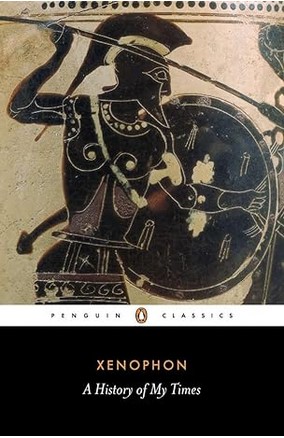
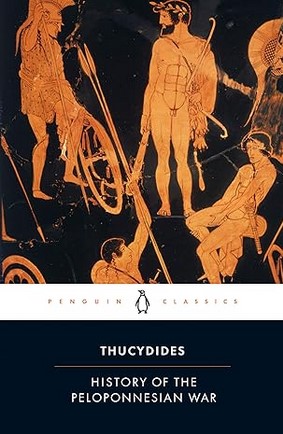
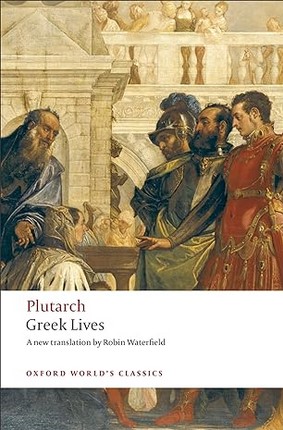
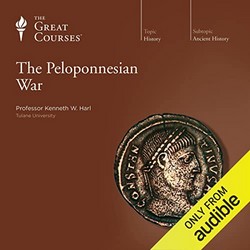
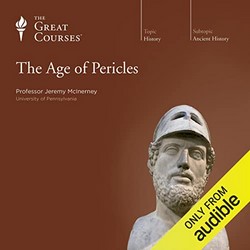
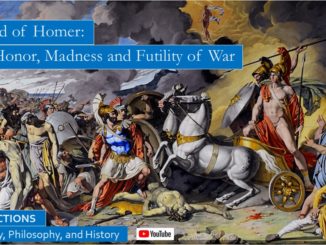
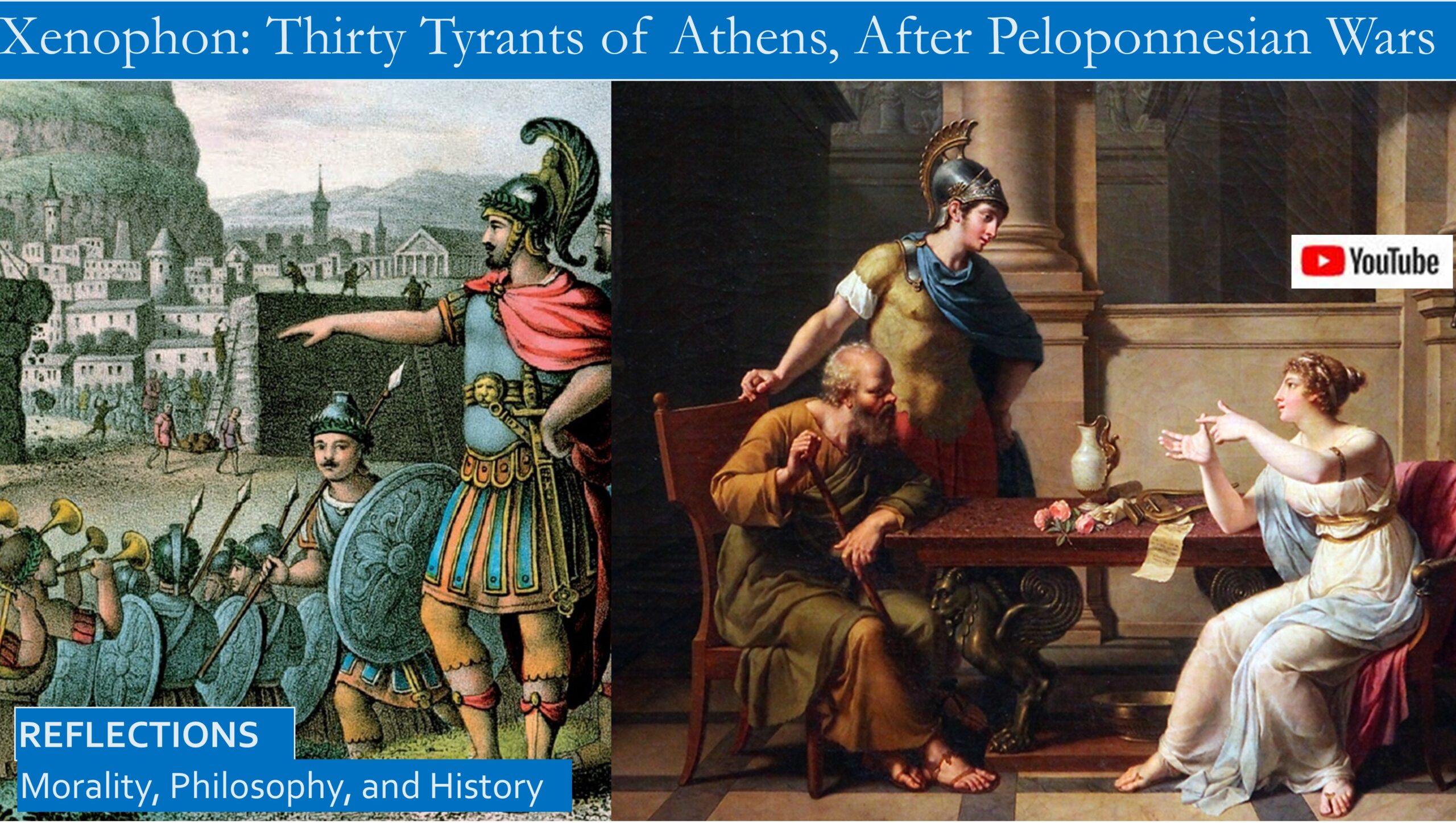
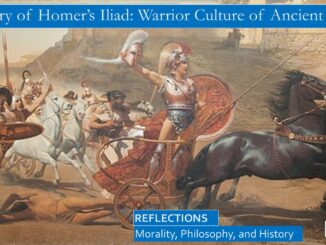
Be the first to comment